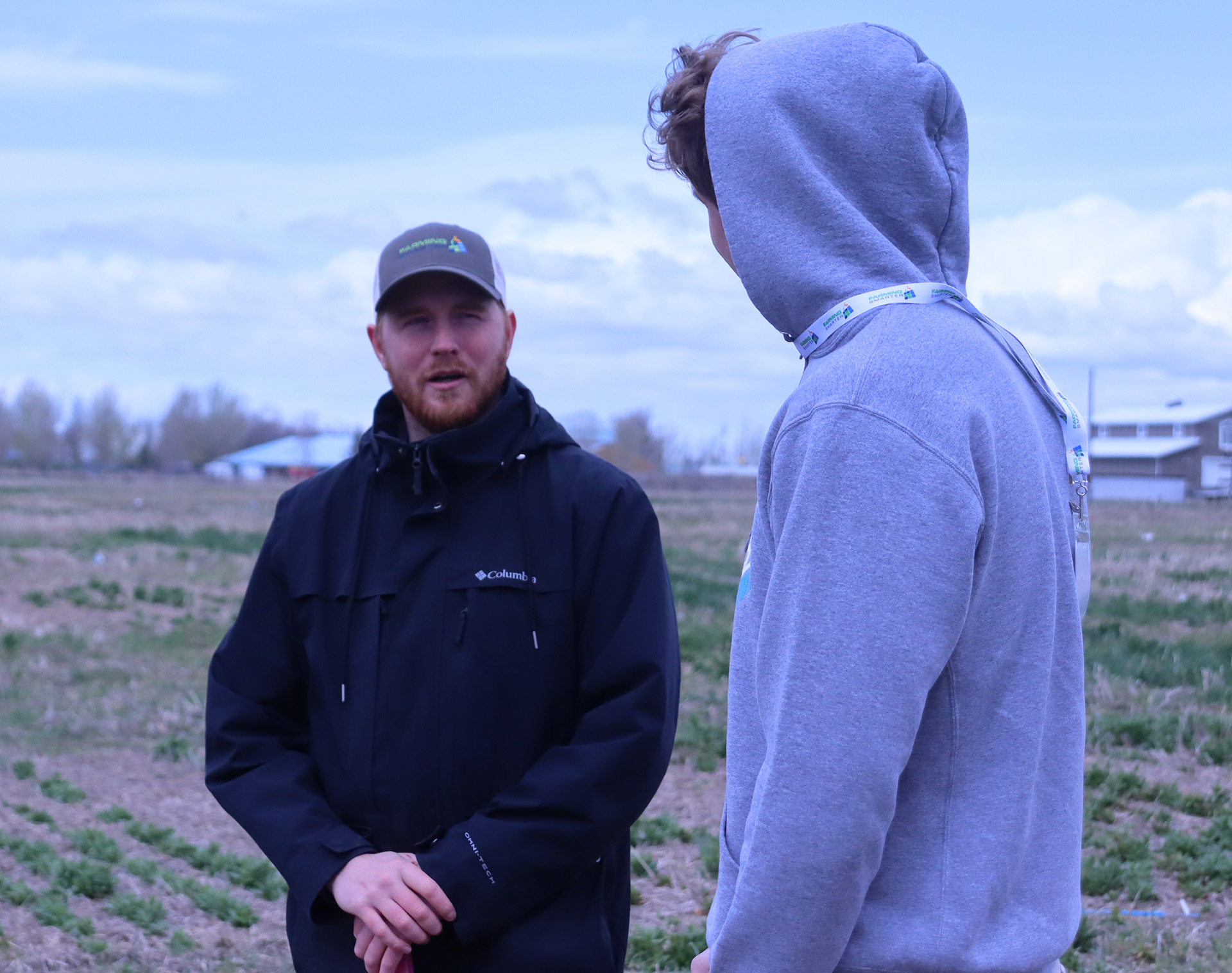The newest addition to our team is eager to get into the soil and help producers expand their knowledge.
Thierry comes to Farming Smarter after completing postdoc work at the University of Alberta. There, he researched soil nutrients as part of a pilot study from the current Regenerative Alberta Living Labs.
Before coming to Canada, Thierry completed his PhD in 2016 in geography in the United Kingdom, where he looked at the environmental impact of specific wetland occupation sites called ‘crannogs’, prehistoric and early historic man-made islands in lakes unique to the British Isles. He specialized in environmental archaeology in Southampton, which lies on the south coast of England specifically.
He took part in multiple archaeological digs as well as head on boats to manually collect the lake sediment cores for analysis. This let him enjoy the coastal Atlantic environment of wind and rain interspersed with sunny days. Unfortunately, he grew uncomfortably familiar with swatting away black flies and horseflies while knee-deep in marshes or trowelling through sandy mud to find wooden features and earthen pottery.
“I will always treasure the excitement of seeing the scale of the structures underneath the wet topsoil and the discovery of two-thousand-year-old quern-stones used to grind down cereal grains into flour. But I will not miss the horseflies,” Thierry laughs.
Part of Thierry’s job was to examine micro fossils such as pollen and aquatic algae from lakes and analyzed ancient DNA from plants and animals to reconstruct past environments around archaeological sites in Scotland and Ireland. This information informs us about ancient and historical farming practices, such as nutrient loading, soil erosion, the types of livestock and crops that were grown.
Following the PhD he worked on post doc projects ‘Celtic Crannogs’ and ‘Marginal Islands around the Sea of Moyle’, where most of the work was done behind the microscope, but he was able to explore the Atlantic Islands of the UK and Ireland to collect lake and soil cores for lab analysis.
His tenure in archaeology came to an end when he permanently crossed the Atlantic in 2021 to move to Lethbridge where his wife is employed at the AAFC research center.
After moving across the sea, Thierry used the opportunity to make a career shift from archaeology to agriculture. He started working as a Mitacs Post-Doc with the University of Alberta from 2021-2023, where he was primarily based in the lab. He used weak organic acid and total nutrient digestion protocols to extract nutrients from soils for ICP-OES analysis, as a pilot study for the Regenerative Alberta Living Labs that looked at how farm management practices impact soil health, nutrient availability and carbon sequestrations.
Following the postdoc, Thierry held a brief position as a laboratory assistant at AAFC Lethbridge to continue looking at soil nutrients for the Regenerative Alberta Living Labs.
Thierry has enjoyed the shift from archaeology to agriculture, as it provides an opportunity to directly contribute to food security while exploring complex questions about farm profitability and sustainability.
“Both industries are fun and super interesting, but archeology didn’t have much of an applied purpose,” said Thierry.
He is most excited about working together with producers through this practical research and help them find the answers to their soil questions.
Working together with and for producers to try and answer some of those questions is a welcome shift towards a more practical type of research.
|
|
| Thierry Fonville, left, chats with a new summer student, Brady Vucurevich, at our spring orientation for summer staff during a plant count exercise. |




